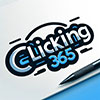In today’s digital era, having a website is essential for businesses and individuals alike. However, hiring a professional web developer may not be feasible for everyone. That’s where DIY (Do-It-Yourself) website development tools come to the rescue. With the advancements in technology, building a website has become easier than ever before, even for those without coding skills. In this comprehensive guide, we will explore the best DIY website development tools available, empowering you to create a stunning website.
Table of Contents
Understanding DIY Website Development Tools
DIY website development tools are intuitive platforms that allow individuals to design and build websites without the need for coding or programming knowledge. These tools typically provide drag-and-drop interfaces, pre-designed templates, and customizable features, making website creation accessible to everyone.
Benefits of Using DIY Website Development Tools
a) Cost-Effective: Hiring a professional web developer can be expensive, especially for small businesses or individuals on a limited budget. DIY website development tools provide a cost-effective alternative, as most of them offer free or affordable plans.
b) User-Friendly: DIY website development tools are designed with simplicity in mind. They eliminate the need for coding expertise, allowing anyone to create a website with ease. The intuitive interfaces and drag-and-drop functionality make the process straightforward and enjoyable.
c) Customization Options: While using templates, DIY website development tools offer a wide range of customization options. Users can personalize the design, colors, fonts, and layouts according to their preferences, ensuring a unique and tailored website.
d) Time-Efficient: DIY website development tools significantly reduce development time. With pre-designed templates and user-friendly interfaces, you can create a website in a matter of hours, rather than weeks or months.
Top DIY Website Development Tools
a) Wix: Wix is a popular website builder known for its user-friendly interface, extensive template library, and powerful features. It offers a drag-and-drop editor, allowing users to customize every element of their website. Wix also provides a range of apps and integrations, ensuring flexibility and functionality.
b) WordPress: WordPress is a flexible and versatile content management system (CMS) that powers over 40% of websites worldwide. While WordPress does require a hosting service, it provides endless customization possibilities through themes, plugins, and a vast community of developers.
c) Squarespace: Squarespace is known for its stunning and visually appealing templates, making it perfect for creative professionals. It offers a user-friendly interface, advanced SEO tools, and a fully integrated e-commerce platform.
d) Shopify: If you’re looking to create an online store, Shopify is an excellent choice. It provides a comprehensive e-commerce solution with built-in payment gateways, inventory management, and marketing tools. With its intuitive interface and extensive app store, Shopify caters to businesses of all sizes.
e) Weebly: Weebly is a beginner-friendly website builder that offers an intuitive drag-and-drop interface. It provides a wide range of responsive templates, allowing users to create beautiful and mobile-friendly websites effortlessly.
f) Joomla: Joomla is a flexible CMS that lends itself well to building complex websites. It offers robust functionality and advanced features, making it an excellent choice for larger businesses or sites with specific requirements.

Key Features to Look for in DIY Website Development Tools
a) Mobile Responsiveness: With the majority of internet users accessing websites through mobile devices, it is crucial to choose a tool that offers mobile-responsive templates and the ability to preview and optimize your site for mobile.
b) SEO-Friendliness: Search engine optimization (SEO) is vital for improving website visibility. Look for tools that provide built-in SEO features, such as meta tags, URL customization, sitemaps, and page speed optimization.
c) Scalability: Consider a tool that allows your website to grow as your business expands. Look for options that offer scalable hosting plans and the ability to add more features and functionality as needed.
d) Support and Customer Service: Ensure that the DIY website development tool you choose provides reliable customer support and resources. This can include live chat, email support, documentation, and community forums.
Steps to DIY Website Development
a) Define Your Goals: Before diving into website development, clearly define your goals and objectives. Determine the purpose of your website, your target audience, and what you want to achieve through your online presence.
b) Choose the Right Tool: Consider the features, templates, and customization options offered by different DIY website development tools. Select the one that aligns with your goals and provides the necessary functionality.
c) Select a Template: Browse through the template library of your chosen tool and select a design that resonates with your brand and vision. Ensure that the template is customizable, allowing you to make necessary modifications.
d) Customize and Personalize: Once you have selected a template, start customizing it to suit your requirements. Modify colors, fonts, and layouts, and add your content to make it unique and representative of your brand.
e) Add Essential Pages and Content: Create essential pages such as Home, About Us, Services, Contact, and any other relevant pages specific to your website’s purpose. Craft high-quality, engaging content that effectively communicates your message.
f) Optimize for SEO: Implement SEO best practices by optimizing page titles, meta descriptions, and headers, and incorporating relevant keywords. Focus on improving page load speed, mobile optimization, and creating a user-friendly website structure.
g) Launch and Promote: Once your website is ready, test it thoroughly to ensure a seamless user experience. Publish your website and promote it through various digital marketing channels, such as social media, email marketing, and SEO optimization.
Conclusion:
Building a website no longer requires extensive coding knowledge or a hefty budget. With DIY website development tools, you can unleash your creativity and create a stunning website that aligns with your goals and objectives. By choosing the right tool, customizing templates, and focusing on optimization, your DIY website will be ready to captivate your audience and drive your online presence forward. Embrace the power of DIY website development tools and embark on your digital journey today!


0 Comments